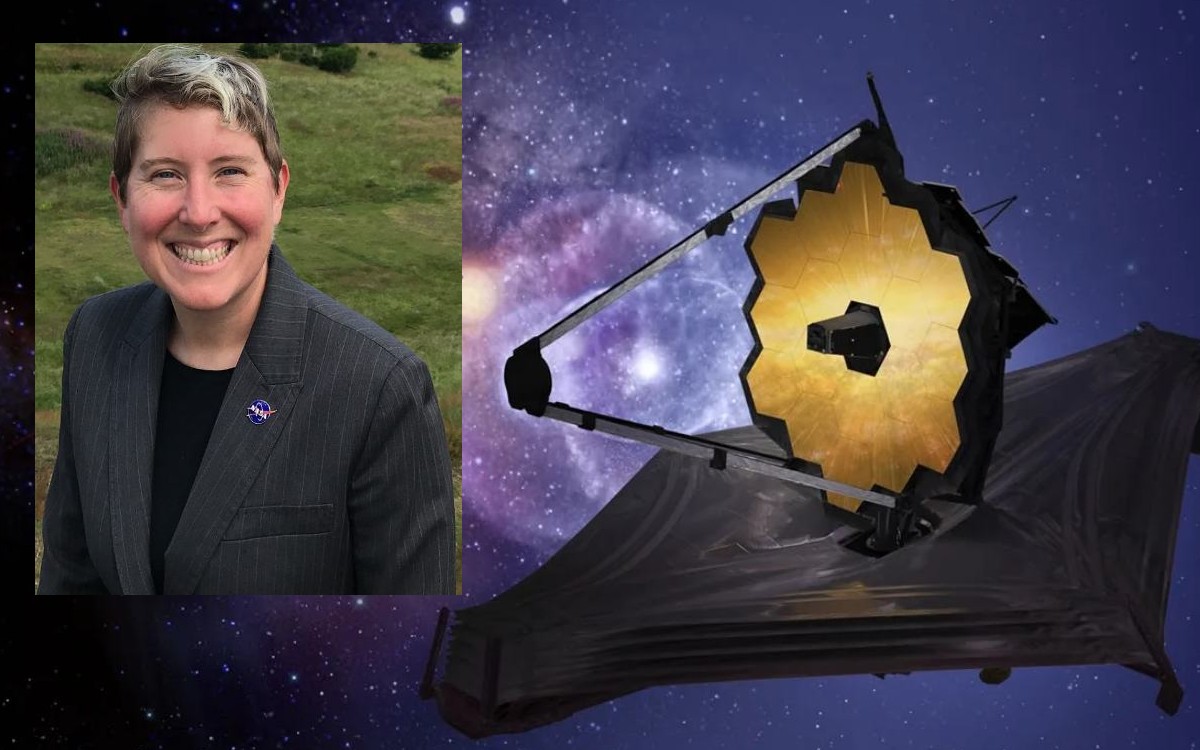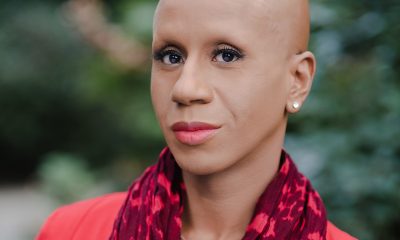News
Why doesn’t outrage over Arizona translate to ENDA support?
Outcry over vetoed anti-gay bill not inspiring calls for Congress to act

Will U.S. House Speaker John Boehner (R-Ohio) take note of Arizona Gov. Jan Brewer‘s veto of an anti-gay measure and bring up ENDA? (Washington Blade photo of John Boehner by Michael Key; photo of Jan Brewer by Gage Skidmore courtesy of Wikimedia Commons)
Within one week, national outrage over anti-LGBT discrimination was able to kill a controversial “turn away the gay” bill in Arizona, but almost 40 years after an early version of the Employment Non-Discrimination Act was introduced in Congress, the bill still hasn’t become law.
The unprecedented firestorm of opposition leading to Arizona Gov. Jan Brewer’s veto of SB 1062 raises questions about why that energy can’t be harnessed to institute federal protections against the discrimination the legislation would have enabled.
The outcry among LGBT advocates, Republican lawmakers, faith groups and the media against the Arizona bill was widespread. The legislation would have allowed any person — which under the bill could be an individual, a religious assembly or business — to deny services based on a religious belief.
Among Republicans, Sens. John McCain (R-Ariz.) and Jeff Flake (R-Ariz.) urged a veto of the measure. They were followed by surprise calls to reject the measure from former Republican presidential contenders generally known for their opposition to LGBT rights: former Massachusetts Gov. Mitt Romney and former U.S. House Speaker Newt Gingrich.
On the business side, the Arizona Chamber of Commerce opposed the legislation as well as corporate tech giants Apple and Intel. Major companies based in Arizona — U.S. Airways and retailer PetSmart — also called on Brewer to veto the bill. The National Football League even weighed in and, according to a report in Sports Illustrated, reportedly considered moving next year’s Super Bowl XLIX out of Phoenix if the measure became law.
Scott Wooledge, a gay New York-based netroots advocate who sought to get major U.S. companies on the record against SB 1062, said he thinks the “broad and vague” language of the bill is what triggered the massive outcry among businesses.
“Individuals could assert under Arizona law that they have the right to fire their gay subordinate,” Wooledge said. “They could say you hired me and I have this gay executive assistant, and I’m firing him because he offends my religious liberty. What would Intel do under this situation because that would be a violation of their company policy, and their own employees would have the force of law behind them?”
But other religious exemption bills that would enable anti-LGBT discrimination have advanced without as much outcry. In Kansas, the state House approved a measure specifically aimed at allowing businesses to refuse services for weddings. Despite media reports that the measure is dead, at least one advocate on the ground has said he expects action soon in the Senate.
In Mississippi, the Senate passed legislation, SB 2681, which would give businesses a license to discriminate against customers based on personal religious beliefs that is under consideration in the House. Although LGBT advocates have spoken out against these measures, the level of outcry isn’t the same as in Arizona.
A number of observers who spoke to the Washington Blade pointed out an obvious distinction: SB 1062 managed to reach the governor’s desk while others haven’t made it that far.
Lanae Erickson Hatalsky, director of social policy and politics for the Third Way, also said Arizona has a special distinction because it has a reputation for passing controversial bills, such as SB 1070, which allowed law enforcement to ask individuals perceived as being immigrants for registration documents before the measure was struck down by the U.S. Supreme Court.
“Folks in Arizona are particularly sensitive about their state getting a bad rap and losing business after the anti-immigrant legislation caused such an uproar,” Erickson Hatalsky said. “This bill was similarly poorly written and would’ve allowed a parade of horribles that made it easy to convince businesses and the public that it was a bad idea, especially on top of that current sensitivity about the state’s reputation.”
But the situation in Arizona was striking not just for the outcry over the legislation, but the wall-to-wall coverage from national mainstream media on the bill on networks like MSNBC and CNN.
As Media Matters notes, even Fox News, which has a reputation of shilling for conservatives, aired commentary from conservative analysts in opposition to the bill. Andrea Tantaros, co-host of “The Five,” compared the bill to the racist Jim Crow laws in the South and said she doesn’t know why “you would want to bring Jim Crow laws back to the forefront for homosexuals.”
Cathy Renna, a New York-based public affairs specialist, said the media coverage of the Arizona bill is part of a trend of growing attention to LGBT rights amid rulings from the U.S. Supreme Court on marriage equality.
“We obviously cannot turn on the TV or look at any website, or if people still flip through newspapers, not seeing a story about this,” Renna said. “It’s almost impossible, and it’s creating a whole new level of conversation about the issue of discrimination, and I think it’s really showing how we have a ton of momentum that’s come a long way, but we still have a lot that we need to do.”
Turning Arizona outrage to ENDA
But if a bill that would have enabled discrimination against LGBT people inspired so much angst, why isn’t that same energy helping to advance measures that would protect against this kind of discrimination, at least in employment, at the federal level?
John Aravosis, editor of AMERICAblog, said the distinction is the Arizona bill was a negative anti-gay measure that could have been enacted by Brewer’s signature within a week, and it’s harder to muster the energy to pass a positive law that can be constantly delayed.
“If the president had a week to decide and then ENDA would be dead forever, people might be a little more engaged, and there might be a little more pressure on him,” Aravosis said. “But the negative is always better reality in playing to the grassroots than the positive. It shouldn’t be, but it is.”
Not helping matters is a misconception that federal protections against LGBT people in the workplace are already in place. According to a YouGov/Huffington Post poll made public in October, 69 percent of Americans incorrectly believe firing someone for being gay or lesbian is illegal.
It’s that kind of false understanding that Erickson Hatalsky said makes people satisfied with the status quo and unwilling to make changes to law as other issues surrounding LGBT rights move quickly.
“If they don’t see a huge problem happening in front of them, they say, ‘Whatever the law is, it must be working,'” Erickson Hatalsky said. “So that really plays to our benefit when it’s an overly broad religious liberty attack like the one in Arizona. It does exactly the opposite when we’re trying to pass affirmative non-discrimination.”
Amid the national outcry over the Arizona bill, President Obama has remained unwilling to sign an executive order barring LGBT discrimination among federal contractors.
White House Press Secretary Jay Carney instead touted the importance of ENDA when asked last week for an update on the directive in the aftermath of the Arizona veto, saying the legislative approach “would be far more comprehensive in its effect.” Still, Carney acknowledged the broad opposition to the Arizona bill.
“And it was gratifying to see Americans from all walks of life, including business leaders, faith leaders, regardless of party, speak out against this measure — and it’s further evidence that the American people fundamentally believe in equality, and it’s time to get on the right side of history,” Carney said.
But Congress has shown no signs of moving forward. Months after the Senate approved ENDA by a bipartisan 64-32 vote, U.S. House Speaker John Boehner held a meeting with the LGBT Equality Caucus and threw cold water on the bill, either saying there’s “no way” ENDA would come this session or it’s “highly unlikely.” Still, those in attendance see an opportunity for a bill to come up after Election Day during the lame duck session of Congress.
Seeking discharge petition, Paul Ryan’s help
The effort to link the discrimination that would have been allowed under the Arizona bill to the need to pass ENDA is daunting, but something observers say can happen.
Wooledge said the situation over the Arizona bill was different than the effort to enact federal workplace protections because there was a singular focus, a veto, and a singular target, Brewer. If supporters settled on a discharge petition as the method to pass ENDA in the House, Wooledge said, the results would be similar.
“I have full confidence that the progressive coalition that coalesced around SB 1062 would do a very similar campaign to persuade legislators both Democratic and Republican to sign the discharge petition, but they don’t want to do that,” Wooledge said. “Human Rights Campaign has never called for a discharge petition, never has the [National] Gay & Lesbian Task Force, so if our own 800-pound gorillas of advocacy don’t want a discharge petition, then Nancy Pelosi is not going to want a discharge petition.”
For Erickson Hatalsky, Arizona demonstrated the importance of having Republican, business and faith leaders on board with an LGBT measure, and said those efforts should continue with ENDA. One way, she said, is getting Republican star Rep. Paul Ryan (R-Wis.), who voted for ENDA in 2007, to vocalize renewed support.
“I think we’ve only had Jeff Flake and John McCain and those other Republican senators on ENDA for a few months,” Erickson Hatalsky said. “That was a huge step that we’ve taken in the past year, so we just have to keep building on it and make the case to John Boehner that it’s in his best interest to get on board.”
Instead of the Arizona bill, Aravosis said supporters of federal non-discrimination protections should look to the path that led to repeal of “Don’t Ask, Don’t Tell,” when gay discharged troops brought their stories to the media.
“With ENDA, if we had stories coming out every day, gays in the military…been screwed again today, we’d probably be more successful,” Aravosis said. “That’s the battle to compare it to because we had stories almost every day of these nice people losing their jobs. The folks getting paid to do ENDA are not putting out those stories every day.”
The extent to which national LGBT organizations will draw on the controversy to advance ENDA isn’t yet clear. Freedom to Work didn’t immediately respond to the Washington Blade’s request for comment.
Dan Rafter, spokesperson for the Human Rights Campaign, said his organization intends to carry the outrage over the Arizona bill to the table in engagement over ENDA.
“Bills like SB 1062 illustrate how vulnerable LGBT people remain when it comes to facing discrimination – be it in their workplace or their communities,” Rafter said. “But the backlash to the bill, including from Republicans and big business, illustrates the incredibly broad support for workplace protections. We are absolutely going to continue elevating that message as we work to build support for ENDA in the House by continuing our engagement with members all across the country.”
Rea Carey, executive director of the National Gay & Lesbian Task Force, said in a statement to the Blade the veto of the Arizona bill itself demonstrates the time has come for Congress to act on ENDA.
“America is against discrimination but the public thinks protections are already in the law,” Carey said. “The effort to successfully reject Arizona¹s SB 1062 spotlights the lack of federal LGBT anti-discrimination legislation, sends a clear message that extremism is totally unacceptable to people of all political persuasions, and highlights the urgent need for the House to take up and pass ENDA.”
District of Columbia
Billy Porter, Keke Palmer, Ava Max to perform at Capital Pride
Concert to be held at annual festival on June 9

The Capital Pride Alliance, the group that organizes D.C.’s annual LGBTQ Pride events, announced this week the lineup of performers for the Sunday, June 9, Capital Pride Concert to be held during the Capital Pride Festival on Pennsylvania Avenue, N.W. near the U.S. Capitol.
Among the performers will be nationally acclaimed singers and recording artists Billy Porter and Keke Palmer, who will also serve as grand marshals for the Capital Pride Parade set to take place one day earlier on Saturday, June 8.
The Capital Price announcement says the other lead performers will be Ava Max, Sapphira Cristal, and the pop female trio Exposé.
“The beloved pop icons will captivate audiences with upbeat performances coupled with their fierce advocacy for LGBTQ+ rights, echoing the vibrant spirit of this year’s theme, ‘Totally Radical,’” according to a statement released by Capital Pride Alliance.
“With Billy Porter and Keke Palmer leading the parade as Grand Marshals, we’re not only honoring their incredible contributions to the LGBTQ+ community but also amplifying their voices as fierce advocates for equality and acceptance,” Capital Pride Alliance Executive Director Ryan Bos said in the statement.
“The concert and festival serve as a platform to showcase the diverse array of LGBTQ+ talent, from the chart-topping hits of Ava Max to the iconic sounds of Exposé and the electrifying performances of Sapphira Cristal,” Bos said in the statement. “Capital Pride 2024 promises to be a celebration like no other.”
The concert will take place from 12-10 p.m. on the main stage and other stages across the four-block long festival site on Pennsylvania Avenue.
The White House
Jane Rigby awarded Presidential Medal of Freedom

Sitting among a diverse and venerable group of Americans from every walk of life on the dais in the East Room of the White House on May 3 was lesbian and NASA astrophysicist Jane Rigby, awaiting her turn to be honored by President Joe Biden who would bestow the Presidential Medal of Freedom, the nation’s highest civilian honor, on her.
Rigby, an astronomer who grew up in Delaware, is the chief scientist of the world’s most powerful telescope who alongside her team operating NASA’s James Webb Space Telescope, studies every phase in the history of the universe, ranging from the first luminous glows after the Big Bang, to the formation of solar systems capable of supporting life on planets like Earth, to the evolution of the solar system.
A member of Penn State’s Class of 2000, Rigby graduated with a bachelor’s degrees in physics and astronomy. She also holds a master’s degree and a PhD in astronomy from at the University of Arizona. Her work as the senior project scientist for NASA’s Webb Telescope includes studies on how galaxies evolve over cosmic time and she has published more than 140 peer-reviewed scientific papers.
Rigby was named to Nature.com’s 2022 list of 10 individuals who shaped science and to the BBC’s list of 100 inspiring and influential women in the same year. Rigby had postdoctoral fellowships at Carnegie Observatories in Pasadena, Calif., before landing her job at Goddard Space Flight Center. In 2013 Rigby was awarded the Robert H. Goddard Award for Exceptional Achievement for Science.
A founding member of the American Astronomical Society’s Working Group on LGBTQ Equality in January 2012, now called the Committee for Sexual Orientation and Gender Minorities in Astronomy, Rigby serves as its Board Liaison until her term expires this June.
The lesbian astrophysicist in an interview for SGMA’s website spoke about her experiences including coming out:
“I’ve been out since 2000. My story’s simple — I fell in love with a fellow grad student in the department. It was a close-knit department, so hiding would have been ludicrous. Nor did I want to hide the best thing in my life! So, we were out as grad students. I certainly heard people say awful homophobic things at work there. They weren’t directed at me, and they weren’t said by people with power over me. If I recall, I was much less afraid of homophobic discrimination at work, than I was afraid of the two-body problem, and the lack of support we would receive as a same-sex couple in astronomy. That fear turned out to be justified. I’ve seen numerous different-sex couples get a wide range of support in solving the two-body problem, which was never offered to us,” she told the interviewer.
She reflected on American astronaut and physicist Sally Ride, her childhood role model who had an impact on her career:
“One of my biggest role models when I was young was Dr. Sally Ride. A few years ago, on her deathbed, Dr. Ride chose to write in her obituary that her life partner had been a woman. Dr. Ride was the most influential woman scientist when I was growing up — the person that made me say, “I want to do THAT when I grow up.” It was because of her that I realized that astrophysics was a profession, that physics was a subject girls could study, that NASA needed astrophysicists. So I’m so … amused, I suppose, that Sally Ride was this influence on my life’s path, at a time when I was completely unaware that it was even possible to *be gay* — and at the same time, she was gay, in love, and deeply closeted to keep her job.”
The interviewer noted that “for some women being gay is a cause for concern at the work place. Some say they were unsure about how to turn their sexual orientation into a positive aspect of their work persona.” Then asked Rigby what is your view on this?
“My experience is that absolutely I am a *better* astronomer because I’m queer. For a few reasons. First, I see things different than my colleagues. On mission work, as we weigh a decision, my first thought is always the community impact: ‘If we do things this way, who benefits, and who gets left out in the cold?’ Will this policy create inclusion, or marginalization? I think about science in terms of community-building. What team do we need to tackle a given science problem, with skills that are different from mine? Absolutely I think that way because I’m an outsider, because I’ve been marginalized. And because community-building is central to LGBTQ culture,” she said.
Editor’s note: You can read Rigby’s complete SGMA interview here: (Link)
Married to Dr. Andrea Leistra, Rigby, her wife and their young child reside in Maryland not far from her workplace at the NASA Goddard Space Flight Center in suburban Washington and when not studying the universe is often found on the neighboring Chesapeake Bay wind boarding, a favored pastime.
Also honored in the ceremony Friday were a former U.S. vice president, a civil rights worker and martyr, two former Cabinet secretaries — one a former U.S. secretary of state, a speech writer for the late Dr. Martin Luther King Jr., an Olympian and gold medalist, and one of the most powerful woman political leaders and the speaker emeritus of the U.S. House of Representatives, among others, and LGBTQ advocate Judy Shepard.
WATCH
Arts & Entertainment
Washington Blade’s Pride on the Pier and fireworks show returning June 8
The annual Pride on the Pier Fireworks Show presented by the Leonard-Litz Foundation will take place on Saturday, June 8 at 9 p.m.

The Washington Blade, in partnership with LURe DC and The Wharf, is excited to announce the 5th annual Pride on the Pier and fireworks show during D.C. Pride weekend on Saturday, June 8, 2024, from 2-10 p.m.
The event will include the annual Pride on the Pier Fireworks Show presented by the Leonard-Litz Foundation at 9 p.m.

Pride on the Pier extends the city’s annual celebration of LGBTQ visibility to the bustling Southwest waterfront with an exciting array of activities and entertainment for all ages. The District Pier will offer DJs, dancing, drag, and other entertainment. Alcoholic beverages will be available for purchase for those 21 and older. Local DJ’s Heat, Eletrox and Honey will perform throughout the event.
3 p.m. – Capital Pride Parade on the Big Screen
3:30 p.m. – Drag Show hosted by Cake Pop!
9 p.m. – Fireworks Show Presented by Leonard-Litz Foundation

The event is free and open to the public. The Dockmasters Building will be home to a VIP experience. To learn more and to purchase tickets go to www.prideonthepier.com/vip. VIP tickets are limited.
Event sponsors include Absolut, Buying Time, Capital Pride, DC Brau, DC Fray, Burney Wealth Management, Infinate Legacy, Leonard-Litz Foundation, Mayor’s Office of LGBTQ Affairs, MISTR, NBC4, The Wharf. More information regarding activities will be released at www.PrideOnThePier.com




















